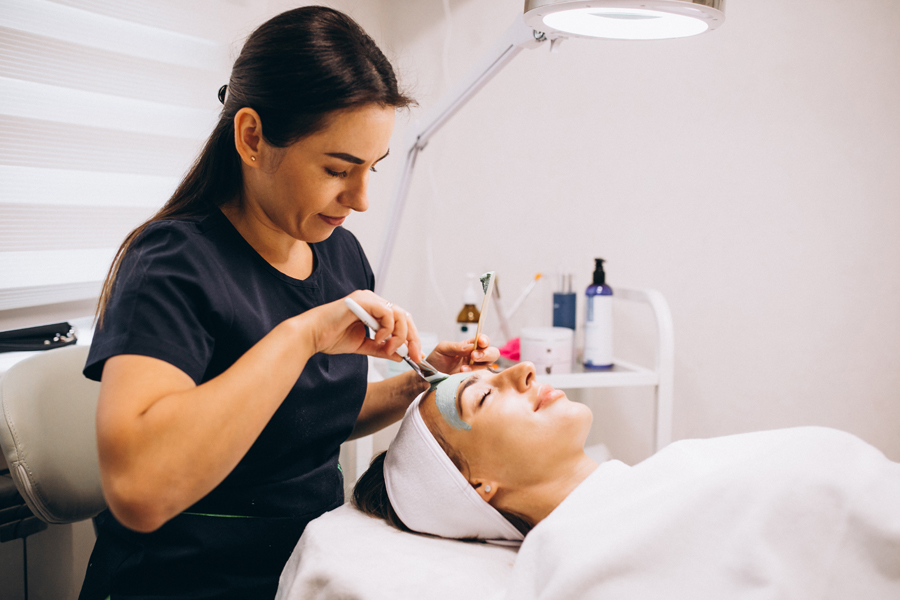Lazzaro Academy
Lazzaro Academy Building, Payyanur, Near Old Bus Stand, Payyanur, Kannur, 670307
Since : 2009
Lazzaro Academy Building, Payyanur, Near Old Bus Stand, Payyanur, Kannur, 670307
Since : 2009
Paramedical Training Centers play a crucial role in shaping skilled healthcare professionals who assist doctors and nurses in hospitals, clinics, and other medical settings. These centers provide students with practical knowledge, hands-on experience, and the technical expertise required in a variety of fields such as laboratory technology, radiology, physiotherapy, emergency medical services, and more.
In Payyanur, a growing educational hub in Kerala, the demand for well-structured paramedical training has seen significant growth. With an increase in healthcare infrastructure and awareness about allied health sciences, students are actively exploring paramedical careers. Let’s explore what these training centers offer, why they’re essential, and what students can expect from them.
Paramedical Training Centers are educational institutions that offer specialized training in various fields related to medical assistance and healthcare services. Unlike traditional medical colleges, these centers focus on job-oriented diploma, certificate, and degree courses that can be completed in a shorter time frame. The curriculum often includes subjects like pathology, radiology, medical lab technology, physiotherapy, and emergency care.
· Lazzaro Academy
Lazzaro Academy Building, Payyanur,
Near Old Bus Stand, Payyanur,
Kannur, 670307
· National Institute of Paramedical Science
1st Floor, City Tower Building,
Fort Road, Kannur,
Kannur, 670001
· St. Thomas Paramedical College
St. Thomas Campus,
Chelora, Kannur,
Kannur, 670006
· Vimal Jyothi Institute of Health Sciences
Chemperi P.O,
Kannur,
Kannur, 670632
· Co-operative Institute of Health Sciences
P.O. Thalassery,
Kannur,
Kannur, 670101
· Kannur Medical Foundation Paramedical Institute
NMK Towers,
Near Kottali Temple, Kannur,
Kannur, 670005
· Malabar Paramedical College
Near SN Park Road,
Talap, Kannur,
Kannur, 670002
· Indian Institute of Paramedical Sciences
2nd Floor, Prestige Tower,
South Bazar, Kannur,
Kannur, 670002
· Sree Narayana Paramedical Institute
P.O. Pinarayi,
Thalassery, Kannur,
Kannur, 670741
· Almas Paramedical College
Almas Complex,
Pallikkunnu, Kannur,
Kannur, 670004
Paramedical training centers play a crucial role in the healthcare industry by producing skilled healthcare professionals who support doctors and nurses in various medical and diagnostic procedures. These institutes focus on practical, hands-on training and job-oriented programs that prepare students for real-time healthcare challenges. From emergency care and diagnostics to lab technology and patient care, paramedical training opens doors to a wide range of career opportunities in hospitals, clinics, and laboratories.
Paramedical institutes are educational centers that provide specialized training in allied healthcare services. Unlike traditional medical schools, these institutes offer diploma, certificate, and advanced programs focused on quick skill acquisition and job readiness. Courses may include Medical Lab Technology, Radiology, Operation Theatre Technology, Emergency Medical Technician (EMT), and more. These programs are ideal for students looking for a fast-track entry into the medical field without a full MBBS degree. With the rise in demand for healthcare workers globally, paramedical institutes are now more relevant than ever.
Paramedical Institutes offer a variety of diploma and certificate courses across disciplines such as Medical Laboratory Technology (MLT), Operation Theatre Technology (OTT), X-Ray and Imaging Technology, Dialysis Technology, Physiotherapy, and Emergency Medical Technician (EMT). The duration of these programs typically ranges from 6 months to 2 years. Many institutes also provide internship opportunities with hospitals, giving students hands-on experience and improving their employability. Most courses are designed for students who have completed their 10th or 12th grade, making it accessible and career-ready for fresh graduates who want to enter the healthcare industry without pursuing long-term medical degrees.
The career opportunities for graduates from Paramedical Training Centers are vast and continuously growing. These professionals are essential in hospitals, diagnostic labs, rehabilitation centers, clinics, and emergency services. With the rise of private healthcare facilities and diagnostic centers, there is a growing demand for skilled paramedical staff across urban and rural areas. Additionally, many international healthcare providers hire trained paramedics from India due to their technical expertise and dedication. As technology in healthcare evolves, so does the need for specialized paramedical professionals, ensuring long-term job security and opportunities for further growth in their field.
Practical-based paramedical courses are the backbone of effective healthcare delivery. These programs blend theoretical knowledge with hands-on experience, preparing students to support doctors, nurses, and medical teams in real clinical environments. With advancements in medical technology and growing demand for skilled health professionals, the need for practical paramedical training has never been greater. Students not only learn about anatomy, pathology, or diagnostics but also actively engage in procedures, laboratory work, and patient care—bridging the gap between knowledge and action.
Practical-based paramedical training equips students with the confidence and skills to operate in real-time situations. Whether it’s handling emergency cases, assisting in surgeries, or managing diagnostic equipment, students gain critical exposure that textbooks alone can’t provide. Hospitals, diagnostic labs, and emergency rooms value such experience because it reduces the learning curve once students are employed. This practical exposure also builds problem-solving abilities, time management, and patient handling—key traits for any medical professional.
Institutes offering practical training often maintain tie-ups with hospitals and diagnostic centers, which opens doors for internships and placements. Employers prefer candidates who have hands-on experience, especially in fields like medical lab technology, radiology, operation theatre technology, and emergency trauma care. The practical orientation not only makes students job-ready but also increases their chances of career advancement, certification, and specialization. Many students go on to become lab supervisors, X-ray technicians, operation theatre assistants, or pursue advanced medical degrees.
One of the biggest challenges in today’s healthcare sector is the shortage of skilled paramedical staff. Practical training plays a crucial role in filling this gap by preparing students who are not just knowledgeable, but capable of performing complex tasks independently. With growing patient loads and technological advancements, healthcare systems need professionals who can work efficiently under pressure. Practical courses ensure students are trained using modern equipment, digital diagnostic tools, and real patient scenarios—making them invaluable assets in hospitals and clinics.
The scope of paramedical careers is vast and growing steadily. With a diploma or certificate in hand, students can work as lab technicians, radiology assistants, dialysis technicians, medical coders, and more. Government and private hospitals, diagnostic centers, and emergency care units all actively recruit paramedical professionals. Further education and specialization can even lead to opportunities abroad. For those inclined towards entrepreneurship, opening a diagnostic center or clinic is also a viable path. In summary, paramedical training offers both stability and career growth in the thriving healthcare sector.
1. What is the duration of paramedical courses?
Most
diploma courses range from 1 to 2 years, while certificate programs can be as
short as 6 months.
2. Can I pursue paramedical courses after 10th?
Yes, many
institutes offer entry-level paramedical courses after 10th, especially in
fields like lab technology or emergency services.
3. What is the average fee for paramedical
training?
The fee
typically ranges from ₹25,000 to ₹1,50,000 depending on the course and
institute.
4. Are these courses approved by government
authorities?
Reputed
paramedical institutes are usually affiliated with state health departments or
bodies like DMLT, AICTE, or NSDC.
5. What job roles can I apply for after training?
You can
work as a lab technician, X-ray technician, OT technician, ECG technician, and
more.
6. Do these courses offer placement assistance?
Many
reputed institutes have tie-ups with hospitals and labs to assist students with
job placements.
7. Is paramedical training only for science
students?
While
science background is preferred, some institutes accept arts and commerce
students for specific courses.
8. Can I do paramedical courses online?
Basic
theory modules may be available online, but practical training requires offline
attendance.
9. Are there any government paramedical institutes?
Yes,
several government-run medical colleges and health departments offer
paramedical training programs.
10. What is the salary of a paramedical technician?
Freshers
typically earn ₹10,000–₹20,000/month, with potential for higher earnings based
on experience and specialization.

Kannur, Payyanur

Kannur, Payyanur
Latest Customer Reviews
"leading vocational training institute in kannur"